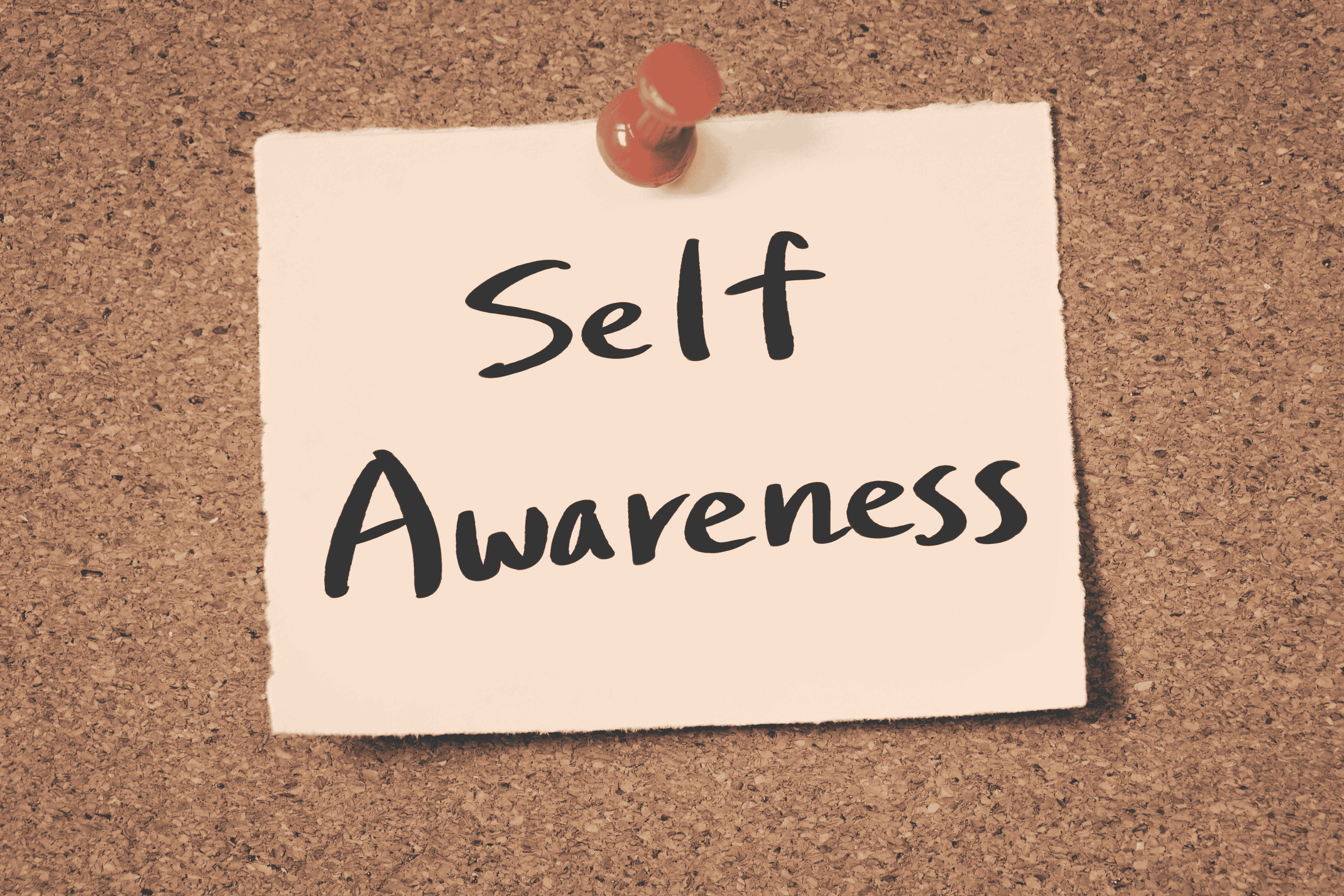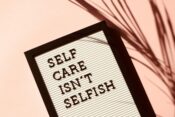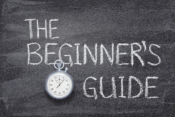
Tips for Improving Self-Awareness and Self-Regulation
Last summer, I decided to take a break from my usual routine and go for a walk in the woods. I wanted to disconnect from the usual noise of work and life and just enjoy some peace. I didn’t realize that this simple decision would help me learn something much deeper about myself.
As I walked, I was caught off guard by a sudden realization. I was overwhelmed by a variety of emotions—stress about work, personal worries, and even things I thought I had already dealt with. But instead of pushing these feelings aside, I decided to sit down on a rock by the trail and simply observe them. That moment of stillness allowed me to reflect, and I realized how disconnected I had become from my own emotions and thoughts.
What I didn’t know then was that I had stumbled upon the practice of self-awareness and was about to experience the power of self-regulation in real time. These two skills would change how I approached both my personal and professional life, helping me navigate challenges with greater calm and control. This experience made me realize how important these abilities are in not only managing our emotions but also in improving our overall well-being. If you’re looking to develop stronger self-awareness and self-regulation, you’re in the right place. Let’s dive into the tips and strategies that can help you cultivate these essential skills.
What Is Self-Awareness?
Self-awareness is the ability to observe and understand your emotions, thoughts, and behaviors in real time. It’s the capacity to recognize what drives your decisions and reactions, and how they align (or don’t) with your values. Self-awareness allows us to gain insight into why we behave the way we do, which is the first step toward making positive changes in our lives.
A common mistake people make is confusing self-awareness with self-criticism. It’s important to approach it with an open mind and a non-judgmental attitude. True self-awareness is not about criticizing yourself; it’s about acknowledging your thoughts and emotions without shame.
Tip #1: Practice Mindfulness
“Mindfulness is one of the most effective tools for increasing self-awareness. It involves paying attention to the present moment without judgment. It’s easy to get lost in the hustle and bustle of life, but mindfulness encourages us to slow down and notice our thoughts and feelings as they arise. For those new to the practice, a beginner’s guide to mindfulness can provide simple steps to get started.
Research from Harvard Health suggests that mindfulness practices can increase self-awareness and help regulate emotions, leading to improved mental health (Harvard Health Publishing, 2021). Techniques like deep breathing, body scans, and meditation can be incredibly helpful. Even just five minutes a day can make a significant difference.
Tip #2: Keep a Journal
One of the best ways to track your emotional state and enhance self-awareness is through journaling. By writing down your thoughts and feelings each day, you create a space to process emotions and reflect on your experiences. This practice helps you recognize patterns in your thinking and behavior, which is essential for personal growth.
A study published in the Journal of Experimental Psychology found that expressive writing can help individuals process emotions more effectively and improve self-awareness (Pennebaker, 2016). Whether you write freely about your day or focus on specific situations where your emotions were triggered, journaling helps you understand your internal state and identify areas for improvement.
Tip #3: Seek Feedback from Others
It’s easy to get caught up in our own perspective, but sometimes we need an outside view to help us gain better self-awareness. Feedback from trusted friends, family, or colleagues can help us understand how others perceive our actions and behavior. This feedback is a valuable mirror that can reveal blind spots we might miss on our own.
Of course, it’s important to seek feedback from people who are willing to be honest and constructive. According to Daniel Goleman, an expert on emotional intelligence, feedback is essential for developing emotional awareness and improving interpersonal relationships (Goleman, 2006).
What Is Self-Regulation?
Self-regulation refers to the ability to control your emotions, thoughts, and behaviors in different situations, especially when faced with challenges or stress. It allows you to stay calm, make thoughtful decisions, and avoid impulsive actions.
While self-awareness helps us understand our emotional triggers, self-regulation helps us manage our reactions. The two skills work hand-in-hand—self-awareness helps you recognize when you need self-regulation, and self-regulation ensures you respond in a controlled and constructive way.
Tip #4: Practice Emotional Awareness
To regulate your emotions, you first need to be aware of them. Self-regulation begins with recognizing when your emotions are starting to take over. For instance, if you feel frustration building up during a difficult conversation, acknowledging that feeling before it escalates can give you the space to manage it effectively.
Psychologist Tara Brach, author of Radical Acceptance, explains that acknowledging emotions without judgment allows us to navigate them with clarity instead of reacting impulsively (Brach, 2003). Once you identify your emotions, you can then use techniques like deep breathing or mindfulness to calm down before responding.
Tip #5: Use the “Pause” Technique
In moments of emotional intensity, the ability to pause before reacting is a powerful tool for self-regulation. Instead of immediately responding with anger, frustration, or impatience, take a few seconds to breathe deeply, gather your thoughts, and think about how you want to react.
Research from the Journal of Personality and Social Psychology shows that individuals who practice self-regulation techniques, like pausing to think before acting, are more successful in managing emotional responses (Baumeister et al., 2007). This simple but powerful technique can prevent rash decisions and improve the quality of your responses.
Tip #6: Set Clear Boundaries
Setting healthy boundaries is an essential part of self-regulation. By understanding your limits and communicating them effectively, you can avoid feeling overwhelmed or taken advantage of. Whether in personal or professional situations, knowing when to say no and when to take a step back helps you manage stress and prevent burnout.
According to psychologist Dr. Alexandra Solomon, clear boundaries allow us to maintain a sense of control over our emotions and actions, which ultimately leads to greater emotional resilience (Solomon, 2018).
Expert Opinions and Recent Research
The connection between self-awareness and self-regulation has been widely studied, with numerous experts highlighting their importance in emotional intelligence and overall well-being. According to Dr. John Mayer, a co-developer of the Emotional Intelligence theory, self-awareness is the foundation of emotional intelligence, and it enables better self-regulation (Mayer et al., 2004).
Recent studies have also supported the idea that practicing mindfulness and self-awareness can improve emotional regulation. A 2020 study published in Psychology Today found that individuals who engaged in mindfulness-based practices showed improved self-regulation and reduced emotional reactivity (Farb et al., 2020).
Conclusion: Start Your Journey Today
Improving self-awareness and self-regulation is a lifelong process, but it’s a journey worth taking. By incorporating mindfulness, journaling, seeking feedback, and practicing emotional awareness, you can enhance your ability to understand and manage your emotions more effectively. Self-regulation will empower you to respond thoughtfully to life’s challenges and make better decisions in both personal and professional settings.
I encourage you to start small—whether it’s a five-minute mindfulness session, keeping a daily journal, or simply practicing the pause technique when you feel stressed. Over time, you’ll find that these practices become second nature, and you’ll notice a significant improvement in your emotional well-being.
What steps are you taking today to improve your self-awareness and self-regulation? Share your thoughts in the comments below, and don’t forget to share this post with friends who might benefit from these tips!
References
- Baumeister, R. F., et al. (2007). How Emotion Shapes Behavior: Feedback, Anticipation, and Regulation. Journal of Personality and Social Psychology.
- Brach, T. (2003). Radical Acceptance: Embracing Your Life With the Heart of a Buddha. Bantam Books.
- Farb, N. A., et al. (2020). Mindfulness and Emotion Regulation: A Pathway to Well-Being. Psychology Today.
- Goleman, D. (2006). Emotional Intelligence: Why It Can Matter More Than IQ. Bantam.
- Harvard Health Publishing. (2021). The Benefits of Mindfulness: The Power of Present Moment Awareness. Harvard Health Blog.
- Mayer, J. D., et al. (2004). Emotional Intelligence: Theory, Findings, and Implications. Psychological Inquiry.












